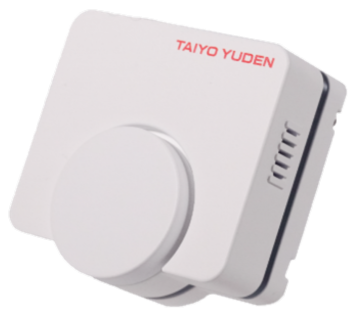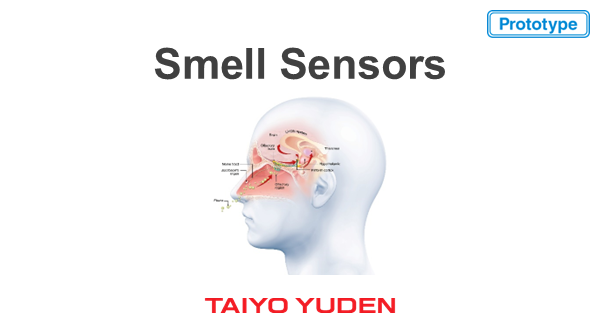We are currently researching and developing Smell Sensors: a QCM-type sensor that identifies odors at high concentrations and a MEMS semiconductor-type sensor that detects abnormalities from changes in conditions at low concentrations.
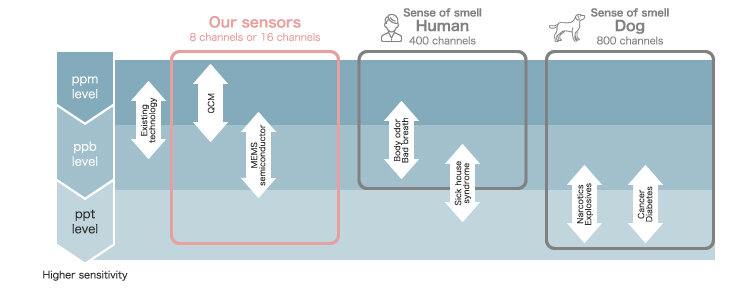
Advantages & Features
Compact and Multifunctional for a Wide Range of Applications
Various smells can be identified by mounting a sensor that can respond to a variety of different smell molecules.
The miniaturized sensor module can be used for a variety of applications, from fixed sensors to mobile applications.
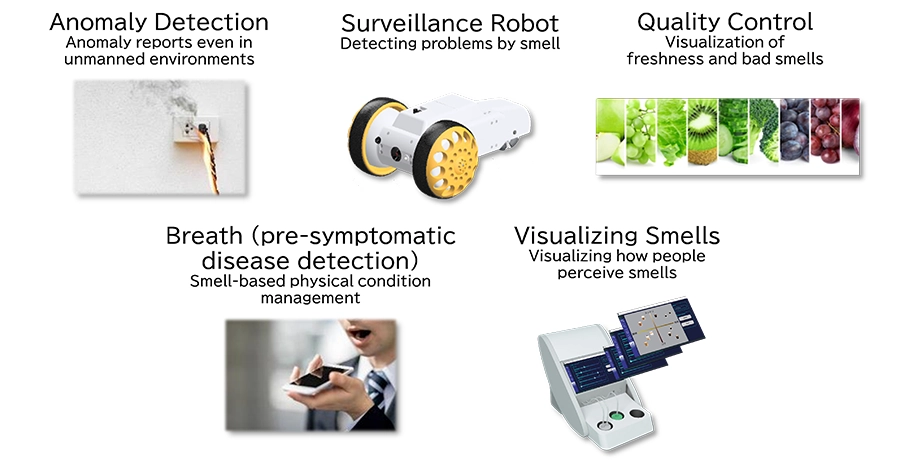
Smell Identification by Machine Learning
Similarly for human smell identification, the system learns in advance what a certain smell is.
The system remembers the learned results to identify and recognize the smell from memory when it senses the smell.
In machine learning, we have developed an algorithm with good identification accuracy to visualize smells.
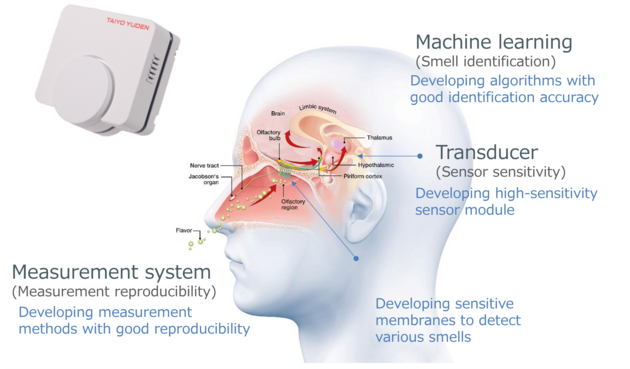
Smell Sensor System Structure
This system is composed of a sensing unit and a PC that controls the sensor.
There are two types of connections between the Smell Sensors and the PC:
wired (USB cable) and wireless (Bluetooth or proprietary 2.4GHz communication).
As an option, it can be synchronized with environmental sensors, enabling simultaneous
sensing with temperature/humidity sensors, CO₂ sensors, and dust sensors.
By creating a learning model from the measurement data and applying it to a microcontroller,
it is also possible to output judgment results instead of raw measurement values.

Related Videos
Download Documents
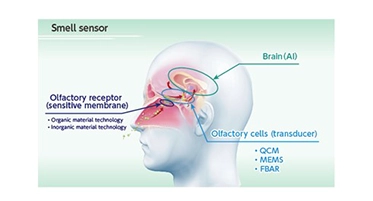
Product Trend / Advantages / Characteristics
Odor recognition with multi-sensor
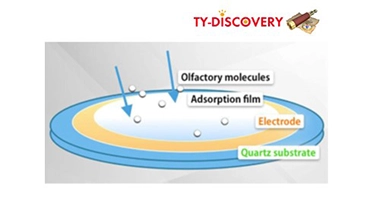
Can we see smells?
Technology of smell visualization is under development! Smell analysis technology accelerated by AI
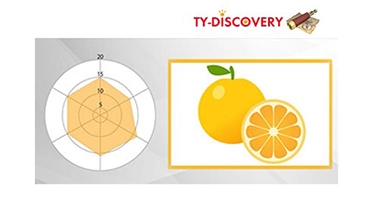
Conveying smells through a TV set?!
Feasibility of smell generation technology that will change common sense

